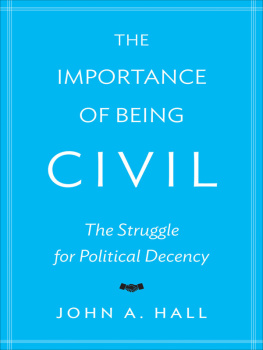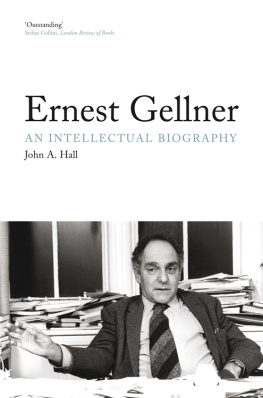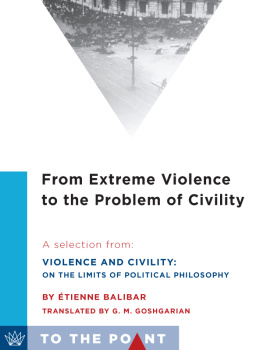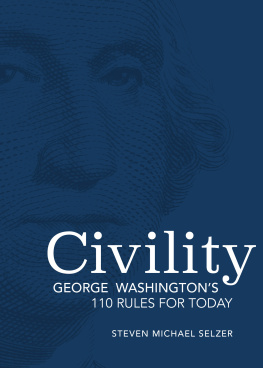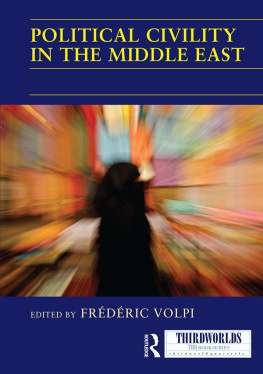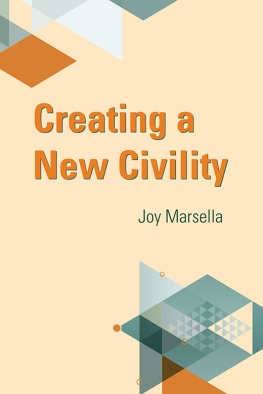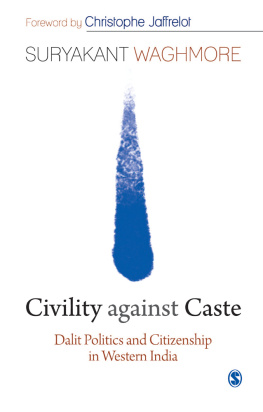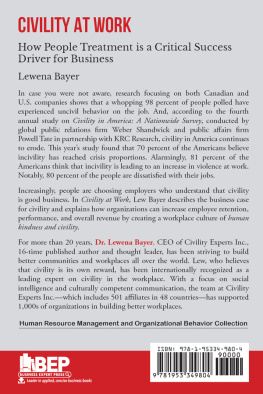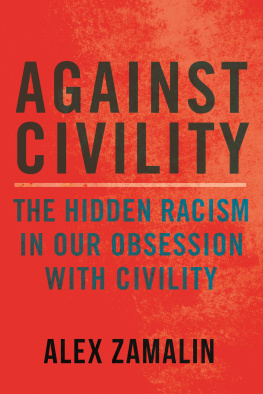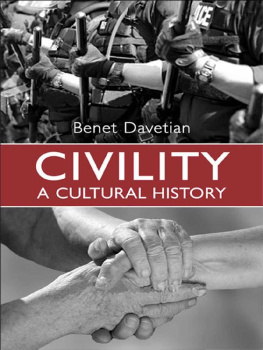
THE IMPORTANCE OF BEING CIVIL
THE IMPORTANCE OF BEING CIVIL
The Struggle for Political Decency

JOHN A. HALL
PRINCETON UNIVERSITY PRESS
Princeton and Oxford
Copyright 2013 by Princeton University Press
Published by Princeton University Press, 41 William Street, Princeton, New Jersey
08540
In the United Kingdom: Princeton University Press, 6 Oxford Street, Woodstock, Oxfordshire OX20 1TW
press.princeton.edu
Jacket illustration: Handshake by Jake Nelson from the Noun Project.
All Rights Reserved
Library of Congress Cataloging-in-Publication Data
Hall, John A., 1949
The importance of being civil : the struggle for political decency / John A. Hall.
pages cm
Includes bibliographical references and index.
ISBN 978-0-691-15326-1 (hardcover : alk. paper) 1. Social ethics. 2. Civil society. I. Title.
HM665.H35 2013
303.372dc23 2012036315
British Library Cataloging-in-Publication Data is available
This book has been composed in Garamond Premier Pro
Printed on acid-free paper.
Printed in the United States of America
1 3 5 7 9 10 8 6 4 2
CONTENTS
ACKNOWLEDGMENTS
Several friends kindly offered detailed comments on this book, so sincere thanks go to Frank Trentmann, Sinia Maleevi, Peter Bang, Geoff Crawford, Francesco Duina, Ralph Schroeder, Chuck Lindholm, and Lilli Riga. A different sort of debtand a huge oneis owed to the Nordea Foundation: the peaceful and beautiful housing it provided during a sabbatical year made it possible to write this book. An early version of chapter 5 appeared in the Journal of Classical Sociology (2011); some parts of chapter 8 first saw the light of day as A View of Death: On Communism, Ancient and Modern, in Theory and Society 27(4) (1998), and are used here with kind permission from Springer Science and Business Media. Princeton University Press has been superb, and I thank Cathy Slovensky and Peter Dougherty, the most brilliant of copyeditors and publishers, respectively. I have been wholly dependent on the excellent research assistance of Kalyani Thurairajah.
THE IMPORTANCE OF BEING CIVIL
INTRODUCTION
Any book praising civility is likely to encounter this sort of criticism:
There is something peculiarly unsatisfying about cases with which no decent-minded reader could disagree [speaking] up for trust, loyalty, teamwork, dialogue, pluralism, an acceptance of difference and a sensitivity to others is not the most world-shaking of moral standpoints. It is hard to see it competing with Machiavellis The Prince or Nietzsches Genealogy of Morals for sheer shock value. Not many works loudly proclaim the virtues of suspicion, disloyalty, uniformity and rampant egoism.
Such criticism can be justified, but it does not apply to this book. A touch of aggression on this point serves the interests of clarity. Civility is not sugary froth but an ideal of visceral importance. Clear claims can be made about it. For one thing, it is possible to specify a condition that is poorly understood, to explain both why it is desirable and why alternatives to it tend to be repulsive. Differently put, analysis of civility will allow us to properly appreciate our better selves, thereby setting up a prescriptive ideal toward which we should aim. For another, importance has sociological as well as moral content: civil behavior has powerful and measurable consequences on identity, and these lie behind social decencies. This too can be put differentlyby insisting that the normative thrust of the argument is neither vapid nor effete but wholly practical. This is not to say that the ideal is always embraced. Some are misled by the attractions of alternatives; others exhibit sheer folly, often as the result of the love of power. All of this is to say that the analysis here is hard rather than sloppy, as is neatly demonstrated by the praise it bestows on The Prince.
The simplest of observations can get us under way: human beings are endlessly imaginative and endlessly silly, with life being at once totally marvelous and utterly absurd. One response to this diversity of condition is the call for civility. An initial reason for the respect it shows toward the varied desires and goals of humanity lies in the realization that it is well-nigh impossible and certainly dangerous to impose any complete set of moral standards in modern circumstances. This does not entail absolute denial of all universal moral standards. How could it given that the ideal of civility considers the agreement to differ to have universal status! But a mild relativism does lie at the back of the ideal, an insistence that few rules of morality are really grounded. Civility accordingly has an ironic flavor that distinguishes it from those versions of liberalism that insist on severe uniformity, and this despite considerable overlap in philosophical assumptions. The fact that manners, polish, self-command, and calm are then properly seen as elements within civility might suggest an endorsement of the cold and distant behavior of an English butler, not least given the portrayal by Anthony Hopkins of one such figure in the film version of Kazuo Ishiguros novel The Remains of the Day. It would be a mistake to make such a link. Remember the last of George Washingtons Rules of Civility and Decent Behaviour in Company and Conversation: Labour to keep alive in your Breast that Little Spark of Celestial fire Called Conscience. Jane Austen makes a similar point:
Mr Elliot was rational, discreet, polished, but he was not open. There was never any burst of feeling, any warmth of indignation or delight, at the evil or good of others. This, to Anne, was a decided imperfection. She prized the frank, the open-hearted, the eager character beyond all others. Warmth and enthusiasm did captivate her still. She felt that she could so much more depend upon the sincerity of those who sometimes looked or said a careless thing, than of those whose presence of mind never varied, whose tongue never slipped.
Mr Elliot was too generally agreeable.
Civility does not stand in the way of truth and moral development but is rather a precondition for them. Nor is it the case that civility is tied in some essentialist way to the class-bound eighteenth-century world in which it first reached something of an apogee. On the contrary, civility is important because it allows disagreement to take place without violence and regularizes conflict so that it can be productive.
But civility is notor, rather, not justa sour grapes philosophy arguing the negative case that we must put up with a rather undesirable situation since no better way forward can be detected. There is everything to be said in this context for remembering a dictum of Oscar Wilde: Man is least himself when he talks in his own person. Give him a mask, and he will tell you the truth. And there can be enjoyment as well as despair when observing the antics of mankind. Indeed, such antics can be valued as sources of innovation, the seeds from which social development might spring.
This initial characterization should be taken merely as an orienting device for all that follows. A good deal of light will be cast on the nature of civility by describing the concerns of its enemies, by those who respond to diversity in different ways. But it would be irritating to have too much of an immanent critique, presuming that the character of civility can be established merely by specifying its antitheses. So it is worth emphasizing that the intent is to offer a positive specification of civility; this explains the orderingpositive before negativeof the two parts of this book. But before turning to the general argument, three preliminary points must be made so as to highlight the character of the treatment of civility offered here.
Next page
